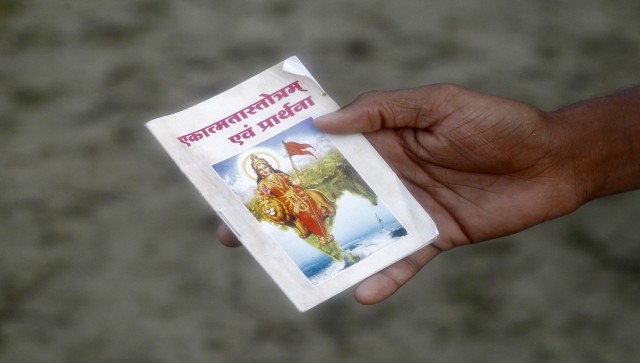Is the RSS a uniquely Indian phenomenon? Obviously it was founded in Nagpur, but the idea for the organisation didn’t pop fully formed out of the head of Dr KB Hedgewar. Setting out to rejuvenate Indian nationalism in the 1920s, it had lots of precedents to draw on. And one example resonates more than any other.
In 1811, in a country suburb south of Berlin, a German high school teacher named Friedrich Jahn started an open-air gymnastics club. It was the era of the Napoleonic Wars, and most of Germany was suffering under French military occupation. Jahn’s native Prussia was technically a “princely state” with its own king, but all real power lied in Paris.
Jahn was a true patriot, and he wanted to prepare his countrymen — mentally and physically — for the day when they would be called on to throw off the yoke of foreign rule. In his club, Jahn taught his boys discipline, self-reliance, and love of country. The curriculum was unabashedly nationalist.
Jahn soon had gymnastics clubs all over Germany, operating as all-volunteer organisations completely free from government oversight. When the time came to expel the French imperialists, the new German authorities eagerly called on Jahn’s energetic, highly-motivated, well-disciplined volunteers for help. But they soon came to see these fervent young nationalists as a threat to their own power.
When a student radical with distant ties to the gymnastics movement assassinated a prominent politician, the government cracked down. Jahn’s gymnasiums were banned, and Jahn himself was arrested and sent to jail for five years. His organisation went underground for two decades before eventually being allowed to reemerge.
Impact Shorts
More ShortsOne of the requirements placed on Jahn’s organisation as a condition of removing the ban was — no kidding — that it must adopt a written constitution.
Jahn’s student volunteers were German, not Indian; their poles were meant for pole-vaulting, not stick-fighting; and they wore long pants, not shorts. It’s cold in Berlin. Otherwise, the national volunteer organisation founded by Friedrich Jahn in 1811 looked an awful lot like the National Volunteer Organisation founded by Dr KB Hedgewar in 1925, otherwise known as the Rashtriya Swayamsevak Sangh.
There really is nothing new under the sun. In fact, similar organisations have been founded in many other occupied countries: Giuseppe Mazzini’s Young Italy (which was a model for both Gandhi and Savarkar), the “Boxers” who tried to expel foreign powers from China in 1901, and (some would argue) Egypt’s Muslim Brotherhood.
If there’s one thing that makes the RSS angrier than being compared to the Boy Scouts, it’s being compared to the Muslim Brotherhood. And to be fair, the parallels are no longer exact. The Brotherhood has changed a lot since its founding in 1928, becoming much more religious, while if anything the RSS has become (dare it be said?) more secular.
But both began as what sociologists call “national rejuvenation movements”. Originating mainly in countries under foreign domination, these organisations focus on creating a sense of national consciousness among the youth (particularly young men) by combining physical fitness with the study of traditional culture. They also emphasise personal discipline, clean living, and general respectfulness.
National rejuvenation movements are very different from national liberation movements like the Indian National Congress. For one thing, they are reluctant to get involved in politics, only forming political parties as a matter of self-preservation. For another, they tend to accept the rule of the powers-that-be, focusing on molding society for the future, not overthrowing the government of the day.
In India, the RSS may have played an important role in India’s independence struggle — or it may have sat idle and let Congress do all the work. That debate is for Indians to resolve. What’s more interesting to an international sociologist is that the RSS is still in the business of national rejuvenation, even as it approaches 100 years old. The only comparable organisation to have survived so long is … the Muslim Brotherhood.
Is India today, a country where more than half the population is under age 30, still a nation in need of rejuvenation? Mohan Bhagwat might think so, but then he’s 72 years old. But anyone who thinks that the RSS is stuck in the past has not, to paraphrase the good Sarsanghchalak, taken the time to understand the organisation. The RSS may be a throwback to another era, but it is a thoroughly modern throwback. Those who wants to defeat it must offer a better vision for the future, not a different version of the past.
The author is an associate professor at the University of Sydney and the author of the new study ‘Unholy Alliance: Inside the Activist Campaign to Pry India from the West’. He earned his MS (mathematical sciences) and PhD (sociology) from the Johns Hopkins University. Views expressed are personal.
Read all the Latest News , Trending News , Cricket News , Bollywood News , India News and Entertainment News here. Follow us on Facebook , Twitter and Instagram .
)